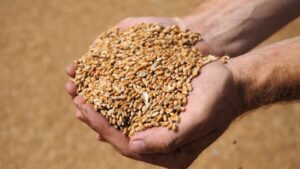
The Slovak government has decided to extend the ban on imports of wheat, corn, rapeseed and sunflower seeds from Ukraine until the end of the year, Prime Minister Ludovit Odor said.
“The European Commission did not extend the ban on imports of four commodities from Ukraine, including wheat, after September 15, so the government decided to ban their imports at the national level. And this is until the end of the year and for the same four products, i.e. wheat, corn, rapeseed and sunflower seeds. We must prevent excessive pressure on the Slovak market to remain fair to domestic farmers,” Odor said, according to Aktuality.
According to him, this step of the government is also a reaction to a similar approach of Poland and Hungary. Odor emphasized that the Slovak government will continue to work intensively with the European Commission and EU member states to find a pan-European and systemic solution while the national ban on imports of these four products is in effect. He stated the government’s readiness to lift the ban in this case.
The Ministry of Agriculture and Rural Development of Slovakia added that this decision is related to the protection of the domestic market and is a logical response to the practice of neighboring countries that adopt unilateral import bans.
“The ban does not apply to the transportation of goods through our territory, which expresses our solidarity with Ukraine and the placement of its goods in target markets,” the ministry added.
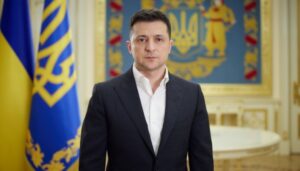
Ukrainian President Vladimir Zelensky began his visit to Slovakia.
“Next up is Slovakia. Important meetings in Bratislava with President Zuzana Chaputova, Prime Minister Ludovit Odor, National Council Chairman Boris Kollar,” he wrote Friday in his Telegram channel.
“Together with our reliable neighbor we talk about concrete defense support and Euro-Atlantic integration of Ukraine, the NATO summit and the Peace Formula, bilateral cooperation, energy security,” Zelensky also wrote.
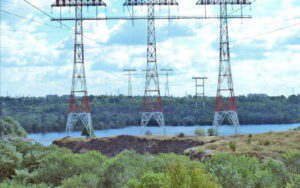
The volume of electricity imports from Slovakia rose 27.3 percent on Sunday compared to Saturday to 4,427 MWh per day, according to data on the website of Continental Europe Transmission System Operators Network ENTSO-E.
According to the site, imports came in 16 hours a day from 6:00 a.m. to 10:00 p.m. at capacities of 10-350 MW. The maximum allowed cross-sectional capacity for imports in the Slovak direction is 350 MW, and on Sunday it was at that capacity for three hours. A total of 10 hours recorded capacity in excess of 300 MW.
At the same time, imports for Monday dropped almost 10 times to 476 MWh per day.
At the same time, according to ENTSO-E data, power exports to Poland, after Monday’s weekend absence, were carried out for nine night and day hours at a capacity of 200 MW – a total of 1,800 MWh per day.
For Moldova, no data on both imports and exports have been available since early June.
As previously reported, electricity supplies from Slovakia were planned at 7.1 thousand MWh per day on June 3 and 7.5 thousand MWh per day on June 4. For comparison, during the first two days of June just under 1.5 thou. MWh was received. A record number of traders participated in the auctions to allocate cross-section capacity on those days – 16 and 17 traders, respectively. Nevertheless, on Saturday, traders absorbed only half of the redeemed cross-section, supplying 3,477 MWh of electric power per day.
Vitaliy Butenko, head of the Energy Company of Ukraine (EKU), commented on the traders’ activity over the weekend: “At the weekend, prices in Slovakia are significantly lower than electricity prices in Ukraine. This trend has been observed for several weeks in a row, which makes it possible to provide additional amounts of electricity to support the Ukrainian energy system.

Czech President Petr Pavel together with Slovak President Zuzana Chaputova arrived in Ukraine on a visit.
“With Zuzana Chaputova, we both understand the value of freedom and justice. It is hard to see with our own eyes that Ukrainians are paying the highest price for it. With the blood and lives of its citizens. In fighting the aggressor, he defends what we have in common. That’s why we will support them,” Pavel wrote on Twitter, showing a picture with the president of Slovakia in front of the destroyed building.
For its part, the Czech media outlet Denikn reported that the Slovak president and her Czech counterpart Petr Pavel arrived in Kiev early this morning.
This is the first visit of the Czech head of state to Ukraine since 2013.
Pavel and Chaputova will meet with Ukrainian President Volodymyr Zelensky and Prime Minister Denys Shmygal, and will also visit cities liberated from Russian occupation near the capital.
A meeting with Crimean Tatar representatives Mustafa Dzhemiliev and Refat Chubarov is also scheduled.
Chaputova also later tweeted about the joint visit to Ukraine.
“Our first joint visit abroad with Peter Paul to Ukraine with a message of friendship, solidarity and support. Slovakia, the Czech Republic and Ukraine share parts of a common history – and we also share our common future,” she stressed.
The Czech TV channel ČT24 reported that the Czech and Slovak presidents visited Irpen, then went to Borodyanka. In addition, the Czech president then headed to Bucha.
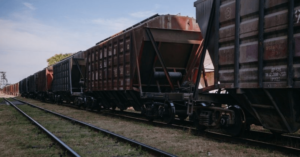
Ukrzaliznytsia JSC has imposed a conventional ban on the transportation of food products to Slovakia, the company’s website says.
“It is forbidden to accept for transportation of cargo for the carrier JSC “ZSSK Cargo”, – noted in a note to the convention.
The ban applies to a large list of products: grains, pulses, oilseeds, vegetables, fruit, sugar, alcohol, honey and more.
The restriction came into force on April 19, 2023 and will remain in force until it is lifted.
We shall remind you that “Ukrzaliznytsia” introduced several conventions on food imports to Poland. At the same time, more than 3 thousand freight cars with agricultural products are heading to this country.
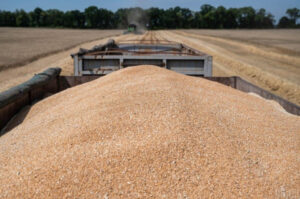
Romania, Hungary and Slovakia will not limit the transit of agricultural products from Ukraine, but negotiations continue on the issue of imports into the countries’ territory. Imports into Poland in transit mode will resume with a T1 declaration, with the use of the SENT system to track the movement of cargo through Poland and cargo seals, said Agrarian Policy Minister Mykola Solsky at an extraordinary meeting of the Coordinating Council under the Agrarian Policy Ministry on Tuesday evening.
According to him, shipments of agricultural products, which will be delivered to Poland in transit, will continue to move across the country’s territory at 00:00 on April 21, accompanied by Polish customs officers.
The issue of transit by rail with the transshipment from wide-rail wagons (for tracks 1520 mm) to narrow-rail (for tracks 1435 mm) is still open. Market participants are expected to receive details of the procedure tomorrow at the Coordinating Council of the Ministry of Agriculture, which is scheduled for 10:30 a.m.
The ban on imports of agricultural products in accordance with the list in the annex to the order of the Minister of Development and Technology of Poland Waldemar Buda from April 15, 2023 has not been canceled.
Earlier it was reported that Ukraine and Poland agreed on the resumption of transit of banned for importation agricultural products: it will work at night from April 20 to April 21, 2023. Additional control measures will be applied to the transit. According to the Ministry of Agriculture of Poland, customs, tax and other services will accompany the transport to its destination. In addition, the SENT mechanism and electronic seals will be applied, by means of which each consignment of goods will be tracked.
Poland on April 15, after the farmers’ congress, made a unilateral decision to temporarily prohibit the import of any agricultural products from Ukraine until June 30, 2023. This happened despite the fact that on July 7, a bilateral agreement was reached with Ukraine on the temporary suspension of exports of only four crops – wheat, corn, rapeseed and sunflower, while transit continued, but with stricter conditions, which the parties planned to agree on quickly.
Hungary and Slovakia made similar decisions afterwards.